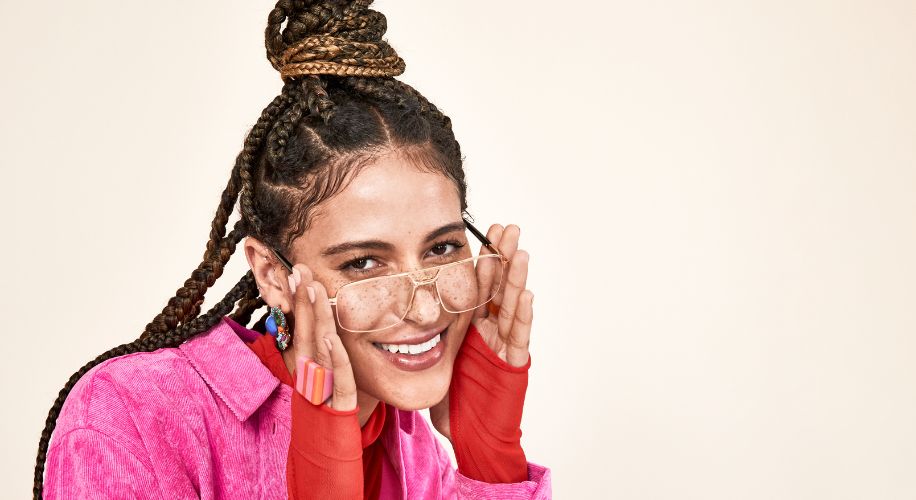Signs You May Need Glasses: Understanding the Telltale Symptoms
- BY Dr. Steven Liem
- IN Education

Clear vision is crucial for navigating the world around us, but sometimes our eyesight needs a little help to stay sharp. Whether you’re experiencing difficulty reading small print or squinting to see distant objects, these signs could indicate that it’s time to consider getting glasses. Let’s explore some common symptoms that may suggest you need glasses and how Zenni can help you find the perfect pair to enhance your vision.
Blurry Vision: When Things Aren’t as Clear as They Used to Be
One of the most obvious signs that you may need glasses is blurry vision, where objects appear fuzzy or out of focus. Blurry vision can occur at any distance and may affect one or both eyes. If you find yourself struggling to see details clearly, especially when reading or looking at objects in the distance, it’s essential to get your eyesight checked by an optometrist.
Eye Strain and Fatigue: Feeling Tired After Extended Visual Tasks
Eye strain and fatigue are common symptoms experienced by individuals who need glasses. When your eyes work harder than usual to focus, such as when reading or using digital devices for extended periods, it can lead to discomfort, headaches, and feelings of exhaustion. If you frequently experience eye strain or fatigue, particularly after engaging in visual tasks, it may be a sign that you need corrective lenses to alleviate the strain on your eyes.
Squinting: A Natural Reflex to Improve Clarity
Squinting is a natural reflex that people often use to temporarily improve their vision. By narrowing the eye’s aperture, squinting reduces the amount of light entering the eye, which can help sharpen blurry images. If you find yourself squinting regularly to see objects clearly, especially when reading or looking at distant objects, it may indicate that you have an uncorrected vision problem that could benefit from glasses.
Frequent Headaches: When Eye Strain Takes Its Toll
Persistent headaches, particularly those centered around the temples or eyes, can be a sign of uncorrected vision problems. When your eyes work harder than usual to focus, it can lead to tension headaches and discomfort. If you experience frequent headaches, especially after engaging in visual tasks, it’s essential to have your eyesight evaluated by an optometrist to determine if glasses could provide relief.
Difficulty Seeing at Night: Struggling with Low Light Conditions
If you find it challenging to see clearly in low light conditions, such as at dusk or nighttime, it may indicate a need for glasses. Poor night vision can make it difficult to drive safely or navigate dimly lit environments. Glasses with anti-glare coatings or specialized lenses can improve night vision by reducing glare and enhancing contrast, making it easier to see in low light situations.
Recognizing the signs that you may need glasses is the first step towards improving your vision and overall quality of life. Whether you’re experiencing blurry vision, eye strain, frequent headaches, or difficulty seeing at night, it’s essential to prioritize your eye health and seek professional advice from an optometrist. With Zenni’s wide selection of affordable and stylish glasses, you can find the perfect pair to address your vision needs and enhance your clarity of vision. Don’t let poor eyesight hold you back—take control of your vision and see the world more clearly with Zenni.



